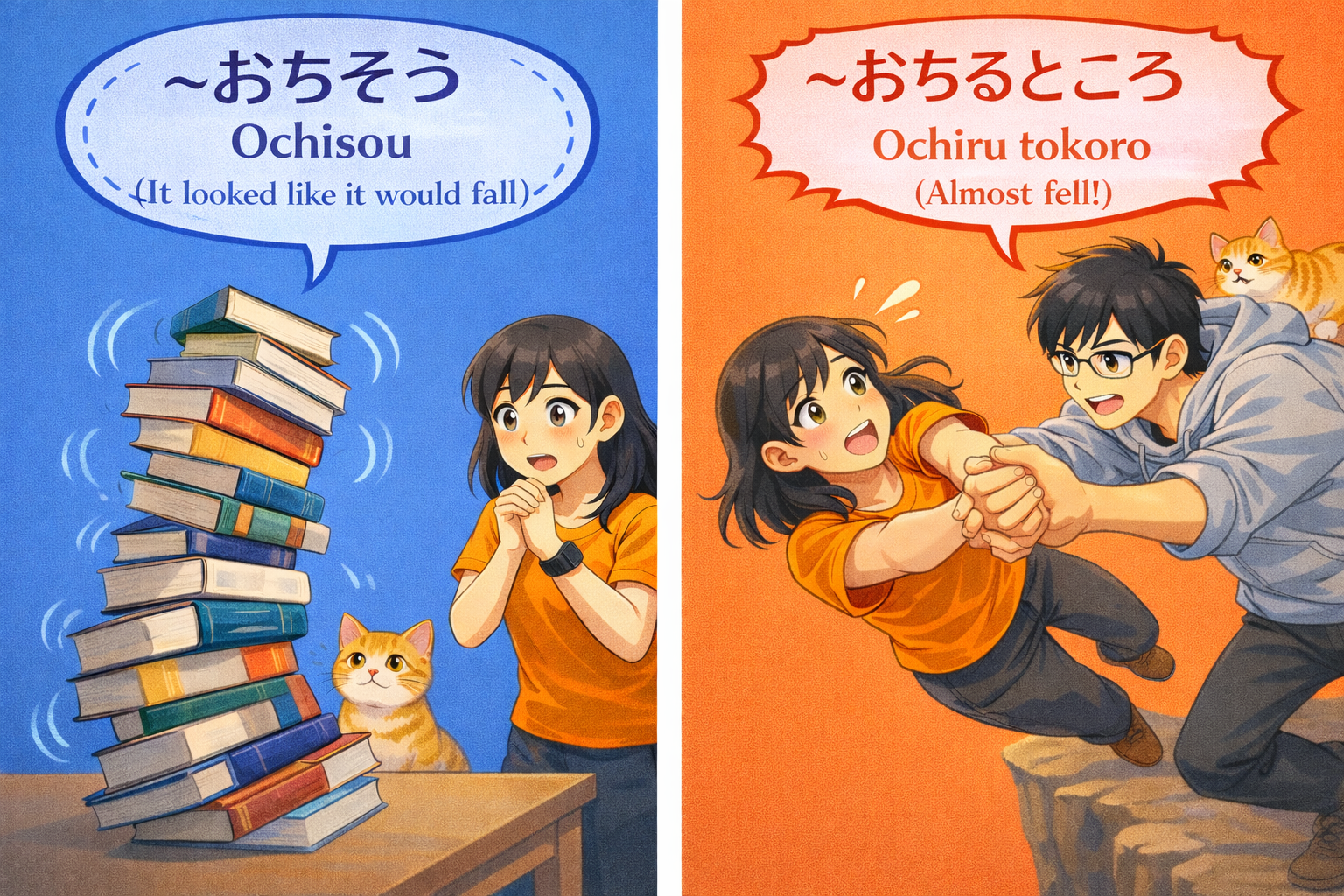
(Joy watching wobbling books [Ochisou] vs. Joy being saved from falling [Ochiru tokoro])
“The cup looked like it would fall.” (Ochisou datta)
“I almost fell (but you saved me).” (Ochiru tokoro datta)
In Japanese, stating that something “almost happened” requires different grammar depending on whether it was a visual prediction or a dangerous near-miss. Let’s learn with Joy and Ken!
🗣 Conversation Scene
Joy and Ken are hiking on a mountain trail.
(ケンが手をつかむ)…ハア、ハア。
ありがとう。崖(がけ)から 落(お)ちるところでした。
(Ahhh! I slipped! [Ken grabs her hand]… Haa, haa. Thank you. I “was just about to fall / almost fell” from the cliff.)
さっきの岩(いわ)もグラグラしていて、落(お)ちそうでした よ。
(That was close. The rock earlier was also wobbling, and it “looked like it would fall”.)
💡 Explanation
Distinguish between “Appearance” and “Close Call”.
Point 1: 〜Sou datta (〜そうだった) = Looked like it would…
Focus: Visual / Prediction
The situation looked unstable, and you thought, “It might fall.” It describes the state before anything happened.
- 本が 落ちそうでした。
(The books were wobbling and looked like they would fall.) - 雨が 降りそうでした。
(It looked like it would rain [cloudy sky].)
Point 2: 〜Tokoro datta (〜ところだった) = Almost… / Near miss
Focus: Close Call / One step away
You were 99% close to the event happening, but you avoided it. Often implies “That was dangerous!” or “I’m relieved.”
- 階段(かいだん)から 落ちるところでした。
(I almost fell down the stairs [I slipped but caught the rail].) - 忘(わす)れる ところでした。
(I almost forgot! [Thanks for reminding me].)
📊 Comparison Table
🚧 Joy’s Mistake
(Joy overslept and arrived at the bus stop 1 minute before the bus left.)
❌ Wrong: バスに 乗り遅(おく)れそうでした。
(Grammatically okay, but it sounds like you were just watching the clock and thinking “Uh oh”. It lacks the “crisis” feeling.)
✅ Right: バスに 乗り遅(おく)れる ところでした!
(This emphasizes the “Close Call.” You almost missed it, but you made it!)
🔥 Practice Quiz
Tap to check the answer!




